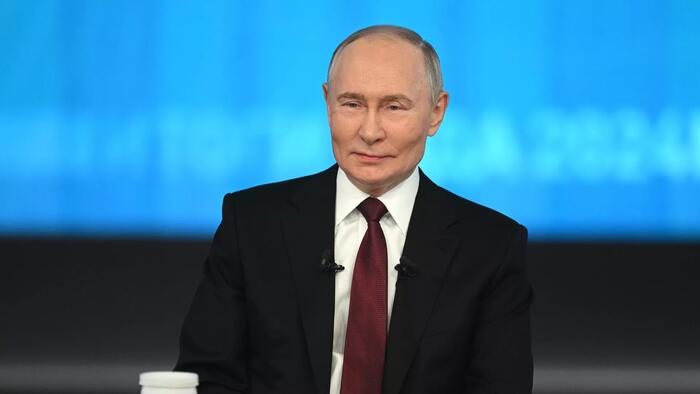In a comprehensive four-and-a-half-hour end-of-the-year Q&A session, President Vladimir Putin reflected on Russia’s geopolitical challenges and accomplishments since he first took office in 2000. Addressing an audience that submitted over two million questions, Putin emphasized Russia’s resilience and strategic maneuvering amidst current global conflicts, particularly those in West Asia and Ukraine. He characterized these situations as part of an overarching “Omni-War,” stemming from U.S. imperial designs. Specifically, in reference to Syria, Putin asserted that Russia intervened not only to counter terrorism but also to protect significant Orthodox Christian sites, criticizing the vast influence of American-backed rebel groups and the enduring repercussions of the CIA’s Operation Timber Sycamore.
Putin’s remarks concerning Syria highlighted the implications of U.S. foreign policy and its alleged impact on regional stability. He underscored that despite challenges, Russia’s military presence in Syria is not a liability but a strategic asset that allows Moscow to foster relationships with various factions controlling the region. Furthermore, he identified Israel as a key beneficiary of the turmoil, openly condemning its policies and military actions in Syria and the Gaza Strip, which he described as “reprehensible.” This acknowledgment points to a complex landscape where Russian interests conflict with those of Israel, as well as the broader Western ambitions in the region.
The situation in Turkey introduced another layer of complexity to the Levantine geopolitical landscape. Erdogan’s aspirations for a “greater Turkey” raised concerns about territorial expansion and its historical claims on regions like Aleppo and Mosul. Despite these tensions, Putin opted for a diplomatic stance, emphasizing the need for Turkey to secure its borders and manage the return of Syrian refugees. However, he acknowledged that underlying tensions, particularly related to the Kurdish populations, could exacerbate existing conflicts. This diplomatic approach hints at potential future negotiations and the dynamic interplay between the involved nations, especially considering the Astana Process’s role in mediating relations between Russia, Turkey, and Iran.
As the conversation shifted to the ongoing conflict in Ukraine, Putin acknowledged that Russia might have underestimated the urgency to act against Kiev earlier and admitted that military preparations were not optimal at the commencement of operations in February 2022. He reiterated Russia’s willingness to engage in negotiations without preconditions, insisting that talks must respect the conditions established by the aborted Istanbul agreement amid the evolving battlefield dynamics. However, his perspective regarding Zelensky’s legitimacy raises questions about the feasibility of reaching an accord, particularly given the geopolitical constraints imposed by powerful external actors like the United States.
Linking regional conflicts to the broader framework of global alliances, Putin noted the significance of BRICS in countering what he termed the hegemonic ambitions of NATO and its allies. He refuted notions that BRICS functions as an anti-Western coalition, asserting that its focus is on fostering economic growth and cooperation among member states. This positioning emphasizes BRICS as an alternative to Western-dominated institutions, indicating a shift in global power dynamics that align with the historical context of geopolitics shaped by economic interdependence and strategic alliances.
Towards the conclusion of his extensive Q&A, Putin provocatively challenged NATO to demonstrate the effectiveness of their defense systems against Russia’s hypersonic technology, particularly the Oreshnik missile. This challenge serves multiple purposes: it highlights Russia’s technological advancements, underscores the futility of Western military posturing, and reiterates Putin’s confidence in Russia’s military capabilities. By framing it as a “21st-century tech duel,” he effectively positioned Russia not as a relic of the past but as a formidable player in contemporary global security dynamics, thus ensuring that the discourse surrounding warfare continues to evolve in both technical and political arenas.

